Did you know you can increase your revenue by up to 62% just by properly using customer testimonials? Many businesses appreciate the value of feedback, but few know how to get testimonials from clients.
Fortunately, it’s easy to get positive feedback from your happy customers. In this post, we’ll cover what high-value testimonials are and how to ask for testimonials effectively. Let’s get started!
Testimonials vs. Reviews
The terms “testimonials” and “reviews” are often used interchangeably, but they have essential differences.
Testimonials are longer and more detailed pieces of content, and they typically focus on specific products or service benefits. 89% of B2B marketers agree that using customer feedback is one of the most important content marketing strategies for online businesses.
Therefore, many companies use testimonials on their website landing pages and promotional materials.
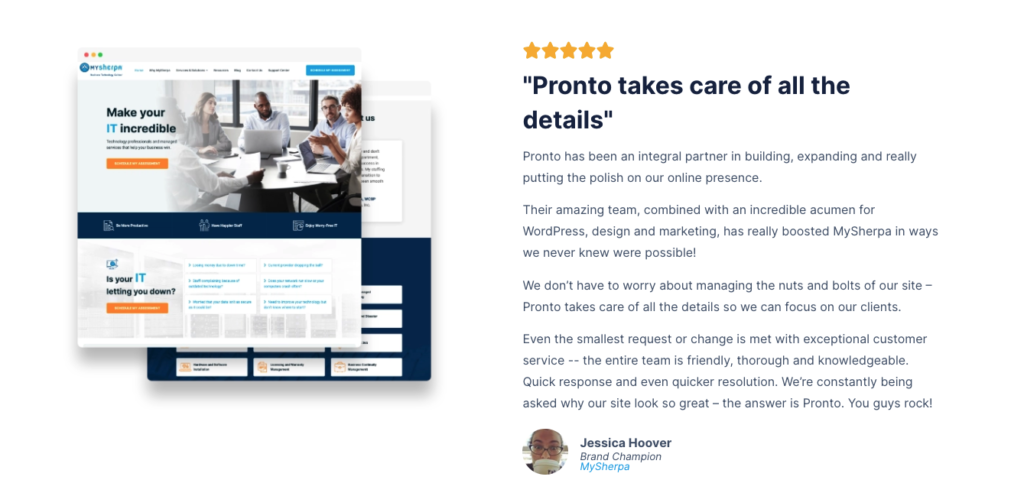
Shorter and less-detailed consumer reviews typically focus on customer experiences with the product or service. You will normally find this feedback on third-party websites such as review sites, social profiles, and Google My Business.
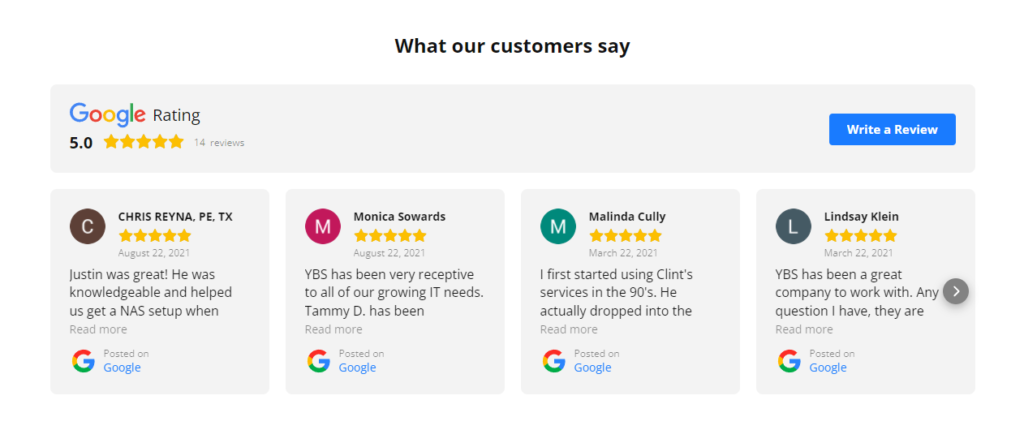
Some businesses even publish reviews on product pages to convince customers to purchase items. This feedback can address doubts and provide valuable social proof.
Both testimonials and reviews are essential for your business. However, in this post, we’ll focus on high-quality testimonials and how you can use them to your advantage.
What Are High-Value Testimonials?
A high-value testimonial is a powerful marketing tool. It can help you boost your brand’s credibility and earn more loyal customers.
So, what is a high-value testimonial? Simply put, it has a significant impact on persuading the potential buyer to choose one firm over another.
Several factors can make client testimonials high-value:
- The customer’s story: When potential buyers hear real-life stories about how your product or service has helped other people, it helps them imagine how your product could assist them too.
- The customer’s credentials: If the person giving the testimonial is hyper-relevant to your industry and service location, their feedback can have a more powerful impact on your audience.
- The customer’s words: When customers describe how they feel about your product or service in their own words, these testimonials can be emotional and compelling.
When looking for high-value testimonials, make sure to target those that will have a significant impact on potential buyers. Stories that describe customer challenges, feelings, and how your products solved their problems can be compelling.
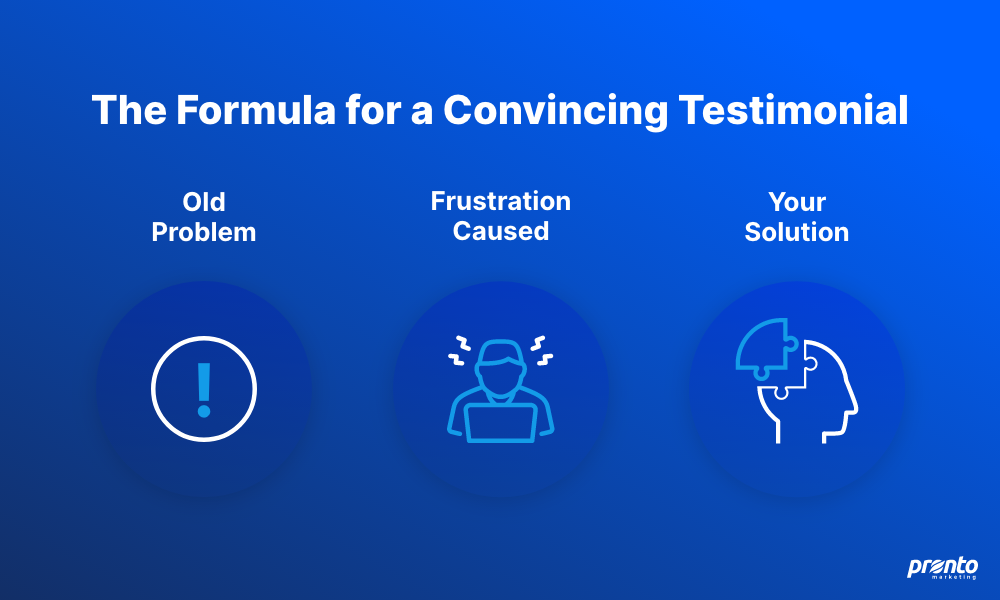
The Formula for a Convincing Testimonial
Although customer feedback comes in different shapes and sizes, some formats are more beneficial than others. A good testimonial focuses on your client’s problem and how it made them feel. It then finishes with how your product or service provided the solution.
Here is a simple structure of a good testimonial:
- Your client’s problem: What type of difficulty or challenge were they facing?
- The frustration that the problem caused: How did this difficulty make them feel?
- The solution they found in your product or service: How did your product or service help them solve their problem, and how did they feel afterward?
If you can get testimonials with this kind of structure, you can have a very powerful marketing tool on your hands.
When someone takes the time to write a detailed testimonial, it shows that they’re satisfied with your product or service. A one-sentence blurb is nice, but it doesn’t carry nearly as much weight as a well-written, comprehensive testimonial.
Detailed testimonials help to legitimize your business in the eyes of potential customers. They provide social proof that others have had a good experience, and they can make people more likely to trust your claims.
So if you’re looking to get more testimonials for your business, make sure to ask your customers for detailed feedback.
How to Get High-Value Testimonials (6 Tips)
You may want to engage with your customers to identify valuable feedback that you can then use in your content marketing strategy. Yet you might not be sure how to ask for a testimonial from a client.
To get you started, here are six easy tips you can follow to get high-value testimonials, as well as a few testimonial examples!
1. Search for Social Media Mentions
Social media mentions can show you what people are saying about your business all over the web. We recommend searching for your business on social media platforms, Google My Business, and other local directories where you have a profile.
You might even set up a Google Alert. It can notify you automatically whenever someone mentions your brand online, helping you save on time and effort.
During this process, keep an eye out for recent positive feedback and even grab some screenshots to use in your marketing materials.
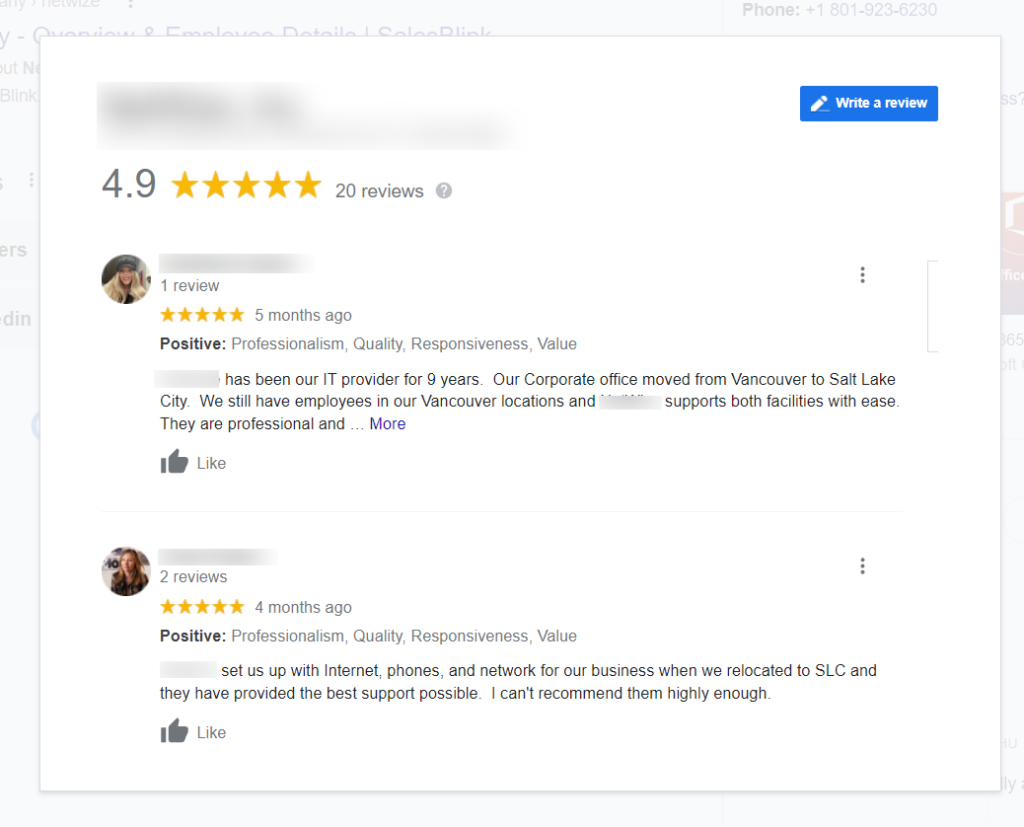
Searching on social media platforms is a great way to find valuable testimonials because you can see how people talk about your product or service in their own words. You can also get a sense of the customer’s tone and what they’re most satisfied with.
People will often truthfully talk about brands on social media, so you can trust that these commentaries accurately represent customer experiences.
Keep in mind that this step won’t be relevant if you don’t have any mentions on social media yet. Still, don’t be afraid to keep checking in. You might even turn to your emails or private messages to see if you’ve received positive feedback in the last few months.
2. Reach Out to Happy Customers
When scouring the internet for your brand mentions, you’re bound to find comments from some satisfied customers. Reach out to them and let them know you would love to hear more about their experiences via a phone call. In many cases, these customers will accept the interview if they’re satisfied with your service.
Before scheduling the call, prepare some specific questions to get as much information as possible. You’ll want to ask queries that inspire high-value testimonials rather than generic feedback. Otherwise, you risk wasting your and your customer’s time.
It’s also a good idea to record the call to replay later. A transcribed version of the feedback can help you save time and identify key phrases.
We recommend using either Otter or Perfect Recall. These tools can record and transcribe your customer phone calls in real-time and store them for later use.
Even though phone calls are generally effective, consider having an open mind and adapting to your customers’ preferences. Some people prefer email follow-ups, while others may be more responsive to text messages.
You might consider using an email template and then personalizing the name for individual customers.
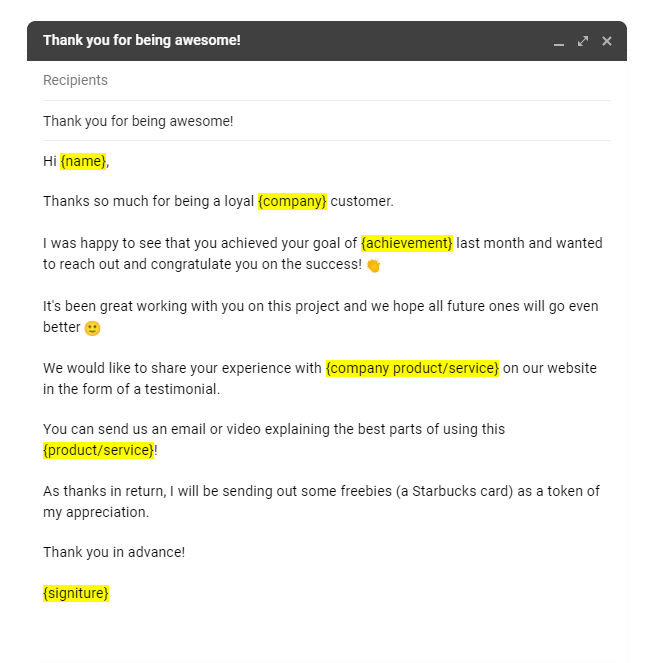
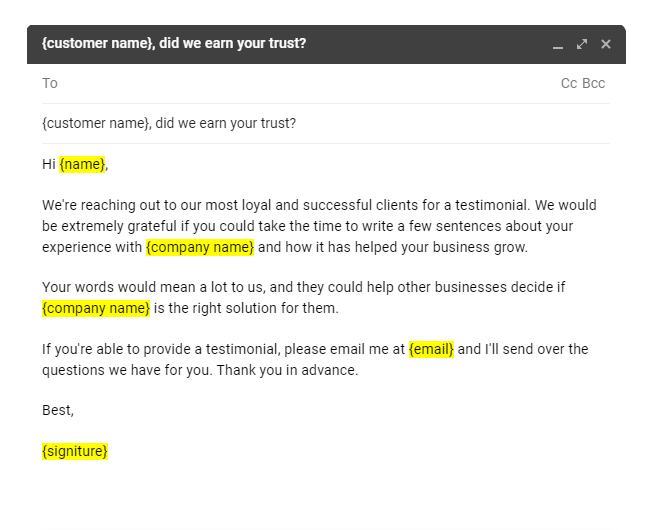
The important thing is to make sure you are comfortable with the method of communication, and that it will be convenient for both parties.
If you have a lot of happy customers, you might want to consider sending out a survey. This method can effectively collect multiple testimonials at once.
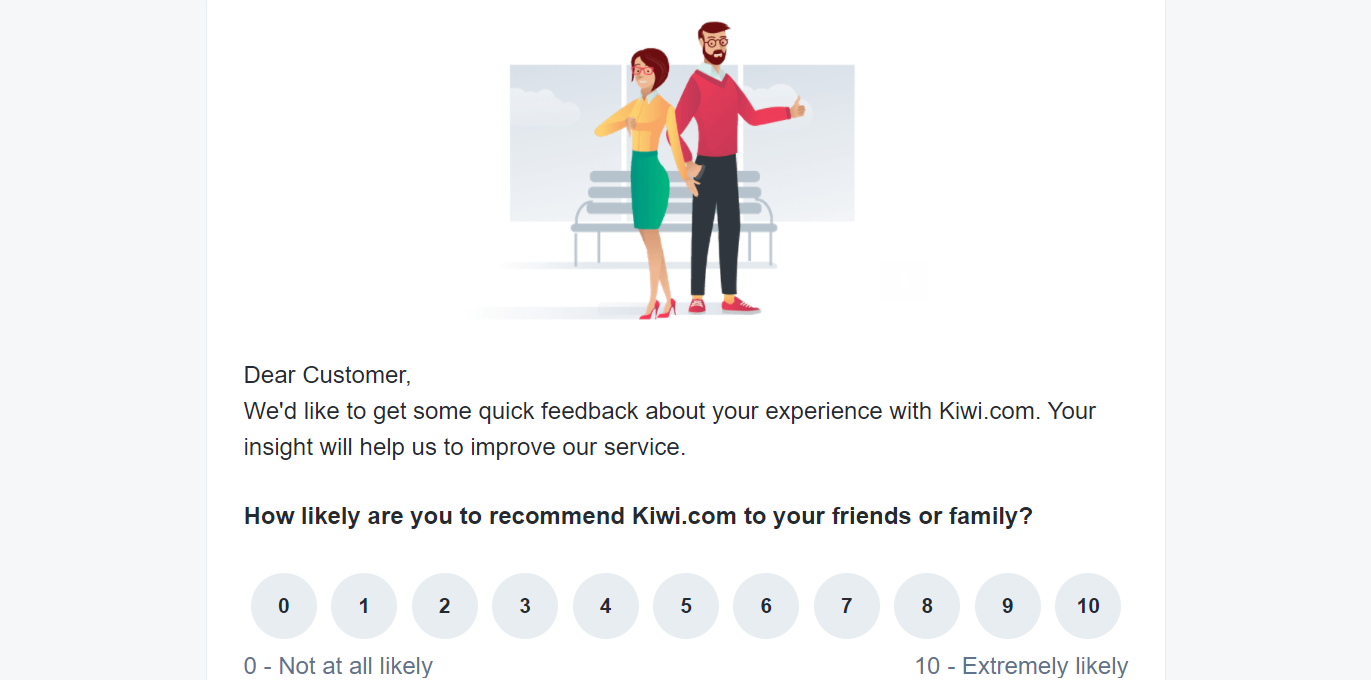
It’s best to keep your questions open-ended, so each customer can share their full experience without feeling constrained by your questions.
3. Ask the Right Questions
If you want to know how to get great testimonials, the key is knowing which questions to ask. Ideally, you’ll want to tap into a customer’s background and values so that they will tell you what is important to them. These consumers are more likely to give valuable feedback.
Here are five questions to get you started:
- What was your biggest challenge before contacting us or purchasing our service? This question allows you to tap into a customer problem and see how your products can benefit future consumers.
- How did our product/service make you feel, and how did it affect your daily life? This question digs a little deeper by exploring the emotional response to using your product or service.
This aspect is crucial because you’ll want to show future customers how your business has positively affected people’s lives.
- What changed after using our service? This question helps demonstrate the impact of your product or service. It can show future customers how your business can change their lives for the better.
- What specific results can you share with us? This query allows you to get into the nitty-gritty of what happened after using your product or service. The answer can show future customers exactly what they can expect from using your product or service.
- Is there anything else you’d like to add in addition to what you’ve shared so far? This question is crucial because it allows customers to share any other feedback they may have.
You may not get all the responses you want from a single customer. Instead, consider interviewing various people and choosing the best parts of their feedback.
4. Offer Incentives for Testimonials
Offering something in return for a testimonial can encourage more people to leave positive feedback. Furthermore, it can demonstrate further that you value your customers.
First, we recommend making it easy for customers to leave feedback. You can do this in various ways, such as including testimonial links on your website or providing QR codes that customers can scan with their phones.
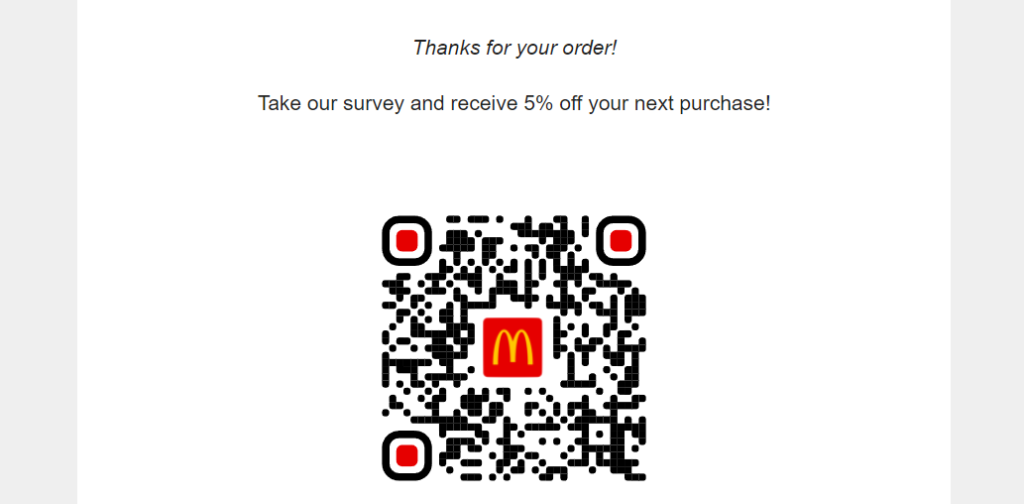
(Easily create a QR code for your testimonial campaign using this free QR code generator)
There are various ways to incentivize reviewers, including:
- Free products
- Gift cards
- Vouchers, or discounts
- Entries into a competition.
- Donate to a charity
The rewards don’t have to be huge to motivate reviewers. Small incentives could be the deciding factor for reluctant customers.
5. Put Your Testimonials Together
After getting the raw answers to the right questions, your next step is putting the testimonials together. This step is where you get to be a storyteller and make the testimonial more impactful.
As you go through the testimonials, identify the key phrases, the pain points, and how your service or product solved consumer issues. You can then highlight the most powerful words and phrases.
Remember that you are looking to create an emotional connection with your audience, so try to use compelling testimonials that will inspire them.

It’s also a good idea to use location-specific testimonials on your location pages to build credibility and support your local SEO efforts.
You can also use some numerical data to add more weight to the impact of your service. For example, if you help businesses save money, adding how much they saved thanks to your service can be very impactful.
It’s okay to reword some of your testimonials to make them more cohesive and easier to understand. Still, be careful not to put words into your customers’ mouths.
Finally, if possible you’ll want to run the testimonial past the customer before publishing it on your website or using it in any marketing materials. The last thing you want is to post a client testimonial that will attract the wrong kind of attention because it doesn’t accurately reflect what they said.
6. Display High-Value Testimonials
The final step is using the testimonials on your website and in other promotional materials. Displaying testimonials on your site is a great way to increase trust with your potential and current customers. Not only does this feedback help show off your happy clients, but it can also humanize your business and make it more relatable.
You might consider creating a dedicated page for your testimonials or displaying them at the top of your home page.
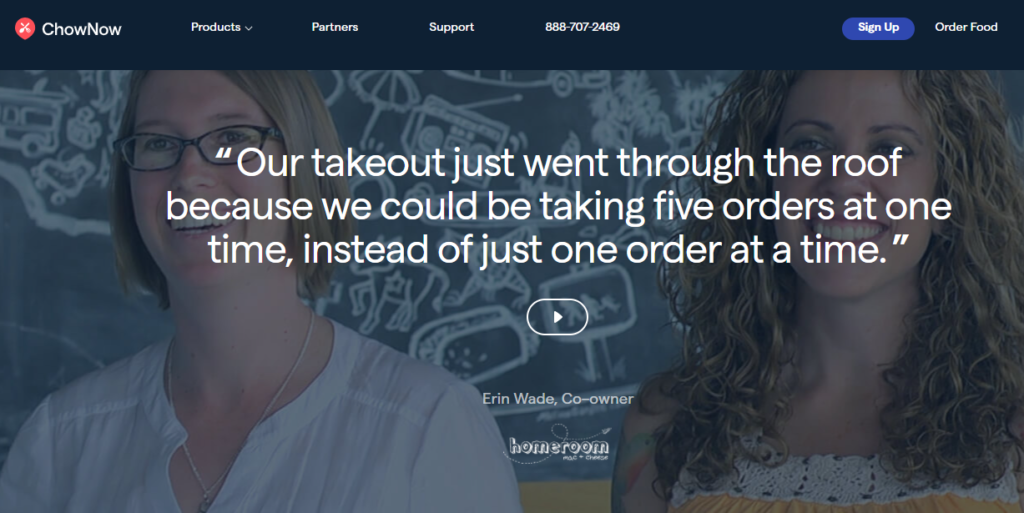
Additionally, consider adding testimonials to your product and service pages. Feedback here can convince new customers to convert.
Finally, testimonials can have a tremendous impact on landing pages. If you run promotions, consider directing customers to existing feedback. It can significantly improve your conversion rates.
Conclusion
High-value testimonials are worth their weight in gold. Not only do they show potential customers that you’re an authority in your field, but they also help support your SEO efforts and establish trust with new leads.
If you need a hand in publishing testimonials to your website, our WordPress Support team can help you get the job done.




